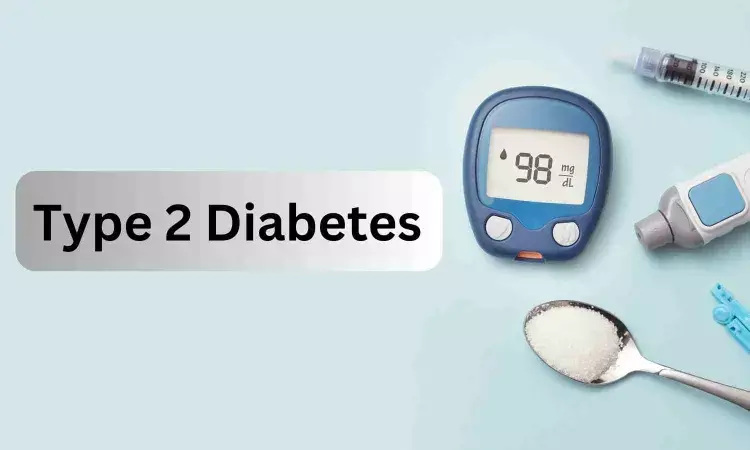- Home
- Medical news & Guidelines
- Anesthesiology
- Cardiology and CTVS
- Critical Care
- Dentistry
- Dermatology
- Diabetes and Endocrinology
- ENT
- Gastroenterology
- Medicine
- Nephrology
- Neurology
- Obstretics-Gynaecology
- Oncology
- Ophthalmology
- Orthopaedics
- Pediatrics-Neonatology
- Psychiatry
- Pulmonology
- Radiology
- Surgery
- Urology
- Laboratory Medicine
- Diet
- Nursing
- Paramedical
- Physiotherapy
- Health news
- Fact Check
- Bone Health Fact Check
- Brain Health Fact Check
- Cancer Related Fact Check
- Child Care Fact Check
- Dental and oral health fact check
- Diabetes and metabolic health fact check
- Diet and Nutrition Fact Check
- Eye and ENT Care Fact Check
- Fitness fact check
- Gut health fact check
- Heart health fact check
- Kidney health fact check
- Medical education fact check
- Men's health fact check
- Respiratory fact check
- Skin and hair care fact check
- Vaccine and Immunization fact check
- Women's health fact check
- AYUSH
- State News
- Andaman and Nicobar Islands
- Andhra Pradesh
- Arunachal Pradesh
- Assam
- Bihar
- Chandigarh
- Chattisgarh
- Dadra and Nagar Haveli
- Daman and Diu
- Delhi
- Goa
- Gujarat
- Haryana
- Himachal Pradesh
- Jammu & Kashmir
- Jharkhand
- Karnataka
- Kerala
- Ladakh
- Lakshadweep
- Madhya Pradesh
- Maharashtra
- Manipur
- Meghalaya
- Mizoram
- Nagaland
- Odisha
- Puducherry
- Punjab
- Rajasthan
- Sikkim
- Tamil Nadu
- Telangana
- Tripura
- Uttar Pradesh
- Uttrakhand
- West Bengal
- Medical Education
- Industry
Systolic BP of less than 120 mm Hg reduced CVD risk in adults with Type 2 diabetes, suggests study

An intensive treatment approach to lowering high systolic blood pressure in people with Type 2 diabetes led to a reduced risk of heart attack, stroke, heart failure and death due to cardiovascular disease when compared to a standard treatment approach, according to late-breaking science presented today at the American Heart Association’s Scientific Sessions 2024. The meeting, Nov. 16-18, 2024, in Chicago, is a premier global exchange of the latest scientific advancements, research and evidence-based clinical practice updates in cardiovascular science.
“We found that for most people with Type 2 diabetes, lowering systolic blood pressure to less than 120 mm Hg reduced the risk of major cardiovascular events,” said lead study author Guang Ning, M.D., Ph.D., an elected member of the Chinese Academy of Engineering and a professor at Ruijin Hospital at Shanghai Jiao Tong University School of Medicine in Shanghai, China. “These findings provide strong support for a more intensive systolic blood pressure target in people with Type 2 diabetes for the prevention of major cardiovascular events.”
A person living with Type 2 diabetes is twice as likely to have high blood pressure than someone without Type 2 diabetes. Elevated blood sugar levels can cause damage to blood vessels and impair kidney function, leading to elevated blood pressure. Almost three-fourths of adults with Type 2 diabetes are estimated to also have high blood pressure, according to the U.S. Centers for Disease Control and Prevention data, and when blood pressure levels are consistently elevated, lifestyle modification and medication are recommended. If unmanaged, high blood pressure can cause damage over time and increase the risk of heart attack, stroke, heart failure, kidney problems and more.
The goal of the BPROAD study was to determine whether an intensive systolic blood pressure reduction approach to a target of lower than 120 mm Hg was more effective in reducing the risk of major cardiovascular events, including non-fatal stroke, non-fatal myocardial infarction, treated or hospitalized heart failure, and cardiovascular death than a standard systolic blood pressure reduction approach to a target of lower than 140 mm Hg among people with Type 2 diabetes.
The BPROAD study included 12,821 adults at 145 study sites located in 25 provinces or municipalities across mainland China were enrolled in the study. All participants had Type 2 diabetes, elevated systolic blood pressure and an increased risk of cardiovascular disease. In this study, the criteria for elevated systolic blood pressure was ≥140 mm Hg without antihypertensive medications or ≥130 mm Hg and taking at least one anti-hypertensive medication.
The results found:
The mean systolic blood pressure levels of the participants at the four-year visit was 120.6 mm Hg in the intensive treatment group and 132.1 mm Hg in the standard treatment group.
The people who received the intensive treatment had a 21% lower relative risk of major cardiovascular events, compared with those who received the standard treatment during the follow-up period.
Non-fatal stroke, non-fatal heart attack, hospitalization or treatment for heart failure, or cardiovascular deaths occurred in 393 participants (1.65% per year) in the intensive treatment group and 492 participants (2.09% per year) in the standard treatment group.
Serious adverse events such as hospitalization were generally similar between the two treatment groups. However, blood pressure levels that were too low with symptoms (symptomatic hypotension) and high potassium levels (hyperkalemia) occurred more frequently among participants in the intensive treatment group.
“Our study results are consistent with another study of patients with hypertension but without diabetes, which found a significantly 27% reduction in the incidence of cardiovascular diseases,” said Ning. “Future clinical practice guidelines will hopefully consider these results when making recommendations for blood pressure targets for people with Type 2 diabetes. Beneficial future research could focus on profiling those with the largest benefit and the lowest harm in an intensive blood pressure treatment group.”
Dr Kamal Kant Kohli-MBBS, DTCD- a chest specialist with more than 30 years of practice and a flair for writing clinical articles, Dr Kamal Kant Kohli joined Medical Dialogues as a Chief Editor of Medical News. Besides writing articles, as an editor, he proofreads and verifies all the medical content published on Medical Dialogues including those coming from journals, studies,medical conferences,guidelines etc. Email: drkohli@medicaldialogues.in. Contact no. 011-43720751


